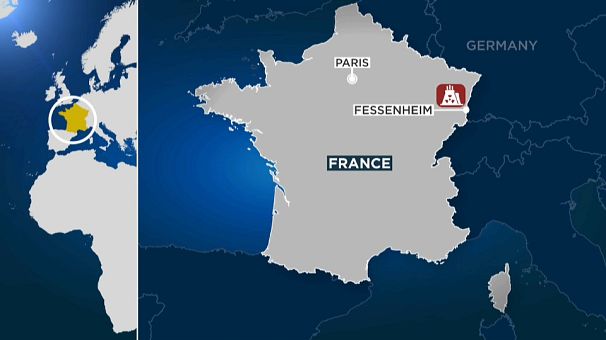France has begun reducing its reliance on nuclear energy by closing a reactor at its oldest plant Fessenheim
France pulled the plug on one of the nuclear reactors at the country's oldest plant on Saturday, a small first step in reducing nuclear's place in its energy mix.
 ADVERTISEMENT
ADVERTISEMENT
 ADVERTISEMENT
ADVERTISEMENT
Environmental activists had demanded Fessenheim — which entered into service in 1978 — close for quite some time, stating that as the reactors aged, the risk of accident increased significantly.
The French government had announced in 2018 that they would stop one of the reactors at the site, which is located near the German border. The second reactor at the plant will stop in June, the government has said.
France has the second most nuclear plants in the world after the United States, with a total of 19 plants and 58 reactors in the country.
About 70% of electricity in France comes from nuclear energy, according to data from Electricité de France (EDF) but environmental activists have raised concerns that there is too much risk of a potential accident.
Proponents of nuclear energy, meanwhile, say that it needs to be part of a low-carbon solution along with renewables to move away from fossil fuel burning energy.
French ecology minister Elisabeth Borne travelled to Fessenheim ahead of the reactor closure on Friday to speak with residents.
Some were apprehensive about closing the plant which provides thousands of jobs in the area.
"It is not simple to close a nuclear power plant. There are jobs, there are employees, and there is a territory... I'm here to own up [to] my decisions and say that we will bring this conversion without leaving anyone behind," said Borne at a press conference in Fessenheim.
Concerns about the safety of nuclear power plants increased after an earthquake in Japan caused an explosion at the Japanese nuclear power plant in Fukushima in 2011.
Some radiation levels near the plant in Japan are still too high for people to live in areas closeby.
The French government has released plans to reduce the share of nuclear in the country to around 50% by closing a total of 14 reactors including the two at Fessenheim.
The other reactors are expected to close by 2035.
But some say the plan doesn't go far enough as France's legion of nuclear power plants age.
Greenpeace protested at the southern nuclear plant of Tricastin, stating that "it was built in a seismic zone and the dam protecting it from flooding remains fragile".
"Radioactive elements have already leaked and contaminated the groundwater on several occasions," the organisation said.
Watch more about the nuclear debate in the video player above.











